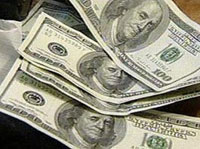Brazil and Uruguay Send US Dollar Home
Brazil and Uruguay may damage their relations with the USA. On December 7, the governments of these two countries signed an agreement about the transition to local currencies in bilateral trade. According to both Brazil and Uruguay, the new measure is to stimulate regional integration of Latin American countries.

Besides, they expect that sidelining the US dollar will facilitate the increase of the goods exchange and ease the trade. They have the following arguments: now Brazil and Uruguay will be able to avoid possible losses caused by currency exchange difference.
Earlier, “outrageous” Hugo Chavez, Venezuela’s leader, approached Latin American countries with the initiative to abandon the US dollar. As we can see, he was heard by the left wing. Brazilian President Luiz Inacio LULA da Silva is considered a moderate socialist who was more than once seen amicably embracing Chavez. Uruguay’s José Alberto Mujica Cordano is much more radical.
On November 30, 2009, Mujica, a candidate from Frente Amplio coalition, which in English stands for "wide front," won the presidential election. The coalition was founded in 1971 by socialists, communists, Marxists-Leninists, social-democrats and independent left.
Mujica is also known as "El Pepe" since 1960-1980s, when he was an active member of Tupamaros (National Liberation Movement) and fought against Pro-American military dictatorship. The movement used all possible methods against junta, including terroristic and criminal ones, staging the robbing of banks, explosions, attacks, and taking hostages. Tupamaros was the first urban guerrilla organization
Mujica’s way to power was difficult and thorny. The future President was wounded several times, and was arrested and tortured on a number of occasions. He spent 15 years in prisons. Yet, he did not break down . He escaped prison twice, and continued fighting .
In 1985, he was included in the amnesty and released. That was the time he began his ascent to the political Olympus. In recent years, Mujica served as the Minister of Livestock, Agriculture, and Fisheries.
Despite his turbulent revolutionary background, he promised to be moderate in his policy making, and continue the course of the former socialist President Tabaré Vázquez.
Is the decision of Brazil and Uruguay to abandon the US dollar in bilateral trade justified from an economic and political viewpoint? Experts Vadim Toperman and Valery Garbuzov shared their opinions with Pravda.ru.
Vadim Toperman, Director of the Center for Economic Research of the Institute for Latin American countries:
“The decision of Brazil and Uruguay to abandon the US dollar in bilateral trade was not a big sensation. The Russian government recently stated that it may do the same thing. In September of the last year, Brazil signed a similar agreement with Argentina. Reciprocal payments in Brazilian reals and Argentinean pesos began as early as 2007, and in 2008 it was legally recorded.
Abandonment of the US dollar is beneficial for both Brazil and Uruguay since the trade between these two countries is constantly growing. This provokes technical difficulties . The main reason is economical, not political. Lately, the US dollar has unstable reputation, and its exchange rate to the Brazilian real and Uruguayan peso changes daily, which makes trading difficult and causes losses.
Valery Garbuzov, Head of Foreign Policy Department of the Institute for the USA and Canadian Studies:
“This was another demonstration of the general Latin American tendency to abandon American currency. It began with Venezuela that had been hatching this plan for a while. Chavez’s appeals to abandon the US dollar were heard as early as in 2007. He was supported by Cuba and other allies in the region. The reason for this was not economic at all. This was a reflection of the political situation. This is a way for governments of a number of counties to demonstrate their anti-Americanism.
Their leaders do not think much about economic and political consequences of these decisions. For them, the most important thing is the beginning. However, it is hardly likely that they will be able to fully abandon the US dollar since all countries in the region are somehow linked to the American currency.
Sergey Balmasov
Pravda.Ru
Russia Today: The dollar funds America's wars
Subscribe to Pravda.Ru Telegram channel, Facebook, RSS!




